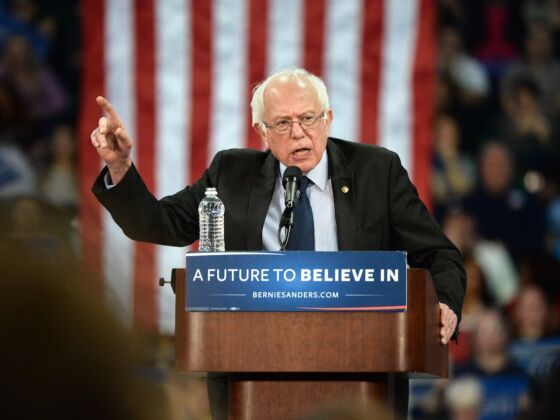AS U.S. VOTERS, THE ABSURD INFLUENCE of money and corporate interests on our political system feels like a necessary evil. As late comedian George Carlin once joked:
“This country was bought and paid for years ago. The shit they shuffle around every four years doesn’t mean a thing.”
But this election year, the Sanders campaign has given us plenty of reasons to believe that corporate America’s time is up. To date, Sanders has raised over $40 million for his campaign. But the real story is how he’s raised it. Instead of using campaign finance tactics that have made Americans cynical about politics in the past, Sanders has changed the campaign finance game entirely. Here’s how:
